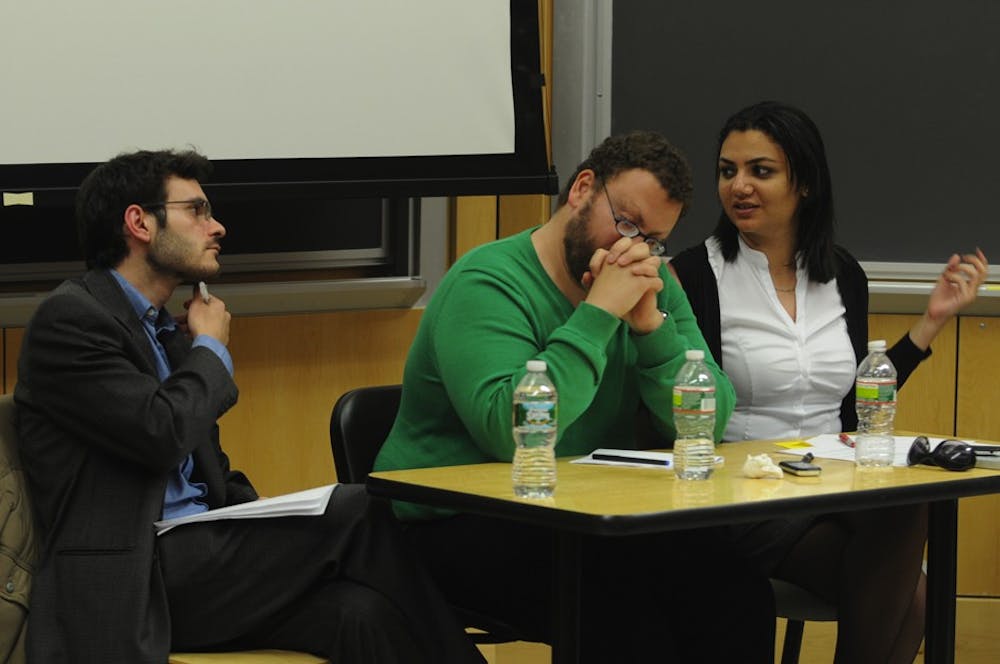Cairo freedom of expression scholar Khaloud Saber visited Penn Wednesday to share her optimism for Egypt with students.
About 30 students came to hear Saber speak along with Murad Idris, a Political Science graduate student at Penn, and Fouad Fawwaz, an Anthropology graduate student at Johns Hopkins University from Cairo. The event, organized by the International Relations department, focused on human rights in relation to Egypt and in particular to its recent revolution.
The speakers emphasized how swiftly political change came to Egypt, and how fast the country is still evolving. For Marwa Ibrahim, a College junior and moderator of the event, the situation is changing everyday.
Saber described the progress in political freedom brought by the revolution — Islamic groups and the youth now have a share of power. Fawwaz also pointed out that Islamic groups that were depicted by the Mubarak regime as a single block are now diverse groups debating on the public scene.
The speakers also explained the impact the revolution had on freedom of expression in Egypt. Although the old Egyptian constitution prohibited censorship and oppression, Saber said the government claimed a constant “state of emergency” in order to infringe on political and artistic freedom.
At universities, for instance, students were “arrested, beaten, tortured inside the campus” as a means of discouraging them to be politically active, Saber said.
Speaking more directly to the audience of students, Fawwaz asked “who here is Tunisian?” to congratulate them. He pointed out that problems of oppression in Egypt were part of a broader issue in the Middle East, and that “Egypt restored dignity to much of the Arab world.”
College senior Sarah Souli, the only student to raise her hand to Fawwaz’s question, also thought it was important to view the recent events in the Middle East as a whole. “It was nice to have someone acknowledge the beginning of the Arab revolution,” she said.
Saber also emphasized how taken aback even Egyptians were with the revolution: “I realized that I didn’t know anything about Egyptian society,” she said.
According to Ibrahim, the events in Egypt are even harder to comprehend from the United States. She said that since the Western press has been covering issues of human rights in Egypt more heavily since the revolution — even though rights were more oppressed beforehand — “a lot of assumptions are made based on false information.”
Note: This article was updated from its original version to reflect that the question on being Tunisian was asked by Fawwaz, not Idris.



